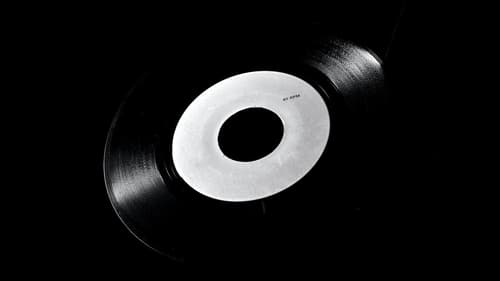Alan Zweig
Рождение : , Toronto, Canada
История
Alan Zweig is a Toronto documentary filmmaker known for often using film to explore his own life.

Writer
Twenty-one years after Alan Zweig’s groundbreaking first feature documentary Vinyl, Zweig returns to the topic of compulsive record collecting with newfound introspection and a sunnier disposition. Punctuated by his signature mirror-confessionals, Records compiles colourful interviews with vinyl enthusiasts, swirling around the proverbial maxim that music has the power to connect us all.

Director
Twenty-one years after Alan Zweig’s groundbreaking first feature documentary Vinyl, Zweig returns to the topic of compulsive record collecting with newfound introspection and a sunnier disposition. Punctuated by his signature mirror-confessionals, Records compiles colourful interviews with vinyl enthusiasts, swirling around the proverbial maxim that music has the power to connect us all.

Screenplay
A look at the careers of retired police officers, as described in their own words.

Director
A look at the careers of retired police officers, as described in their own words.

Director
Spanning years of correspondence and three separate trips to Nunavut, Alan Zweig's latest documentary navigates issues of culture and identity with his pen-pal and semi-reluctant guide, Tatanniq Idlout, a.k.a. Inuk rock singer Lucie Idlout.

Director
HURT is a documentary portrait of Steve Fonyo, a one-legged cancer survivor who successfully completed a cross-Canada run in the '80s, only to spend three decades mired in crime and addiction.

Screenplay
From the 1930's to the 1970's, pretty well every comedian or comic you might see on TV or the movies was Jewish. Jews came to dominate the world of western‐society comedy on radio, stage and screen alike.Why did Jews dominate comedy in this period? And why did that domination end? Were Jews just funnier back then? And if so, did that extend to your average Jew on the street? In this 90 minute documentary acclaimed director Alan Zweig will examine these questions and many others in this exploration of 20th century humour, cultural decay, and a search for a missing heritage.

Director
From the 1930's to the 1970's, pretty well every comedian or comic you might see on TV or the movies was Jewish. Jews came to dominate the world of western‐society comedy on radio, stage and screen alike.Why did Jews dominate comedy in this period? And why did that domination end? Were Jews just funnier back then? And if so, did that extend to your average Jew on the street? In this 90 minute documentary acclaimed director Alan Zweig will examine these questions and many others in this exploration of 20th century humour, cultural decay, and a search for a missing heritage.

Director
What gives your life meaning? Family, yoga, good food, those shoes that were on sale? Ray Robertson outlines his own list in his non-fiction book “Why Not: Fifteen Reasons To Live?” And that has inspired Alan Zweig’s documentary feature 15 REASONS TO LIVE which takes up that list as a call to adventure. The list is: Love, Solitude, Critical Mind, Art, Individuality, Home, Work, Humour, Friendship, Intoxication, Praise, Meaning, Body, Duty and Death.

Director
A documentary focusing on ex-convicts who reveal their struggles with trying to adapt to life on the outside.

Himself
At some point, everyone has asked the question, why is it so hard to find love? In this final installment of the autobiographical trilogy that includes Vinyl and I, Curmudgeon, Alan Zweig reflects with disarming candour on why, if he longs for a partner and children, he is still single at mid-life. Through intimate, heartfelt and often hilarious interviews with a series of diverse, smart and attractive single women, Zweig explores yearnings for the romantic myths of our culture and the difficulty of finding and sustaining relationships. Some women have come to accept and prefer being alone, but many still dream of a future they can share. Rather than remaining the objective observer, Zweig approaches his female subjects as kindred spirits, sharing their vulnerability and openness. A perfect mixed tape of love songs provides the backdrop for this courageously candid look at love and longing.

Writer
At some point, everyone has asked the question, why is it so hard to find love? In this final installment of the autobiographical trilogy that includes Vinyl and I, Curmudgeon, Alan Zweig reflects with disarming candour on why, if he longs for a partner and children, he is still single at mid-life. Through intimate, heartfelt and often hilarious interviews with a series of diverse, smart and attractive single women, Zweig explores yearnings for the romantic myths of our culture and the difficulty of finding and sustaining relationships. Some women have come to accept and prefer being alone, but many still dream of a future they can share. Rather than remaining the objective observer, Zweig approaches his female subjects as kindred spirits, sharing their vulnerability and openness. A perfect mixed tape of love songs provides the backdrop for this courageously candid look at love and longing.

Director
At some point, everyone has asked the question, why is it so hard to find love? In this final installment of the autobiographical trilogy that includes Vinyl and I, Curmudgeon, Alan Zweig reflects with disarming candour on why, if he longs for a partner and children, he is still single at mid-life. Through intimate, heartfelt and often hilarious interviews with a series of diverse, smart and attractive single women, Zweig explores yearnings for the romantic myths of our culture and the difficulty of finding and sustaining relationships. Some women have come to accept and prefer being alone, but many still dream of a future they can share. Rather than remaining the objective observer, Zweig approaches his female subjects as kindred spirits, sharing their vulnerability and openness. A perfect mixed tape of love songs provides the backdrop for this courageously candid look at love and longing.

Writer
Curmudgeon. Contrarian. Misanthrope. Naysayer. For all the people interviewed in this film, someone has used one of the above words to describe them. What have they done to deserve such labels? Everywhere these men and women go, something is being celebrated; they don’t get what all the celebration is about and they’re compelled to question it.

Self
Curmudgeon. Contrarian. Misanthrope. Naysayer. For all the people interviewed in this film, someone has used one of the above words to describe them. What have they done to deserve such labels? Everywhere these men and women go, something is being celebrated; they don’t get what all the celebration is about and they’re compelled to question it.

Director
Curmudgeon. Contrarian. Misanthrope. Naysayer. For all the people interviewed in this film, someone has used one of the above words to describe them. What have they done to deserve such labels? Everywhere these men and women go, something is being celebrated; they don’t get what all the celebration is about and they’re compelled to question it.

Himself
Toronto filmmaker Alan Zweig analyzes the phenomenon of record collecting.

Writer
Toronto filmmaker Alan Zweig analyzes the phenomenon of record collecting.

Director
Toronto filmmaker Alan Zweig analyzes the phenomenon of record collecting.

Producer
Canadian drama.

Director
Canadian drama.

Director
This sequel to the 2015 documentary "Hurt" picks up as Steve Fonyo recovers from his coma and admits that he needs to make changes to his life if he is going to be able to continue on.













